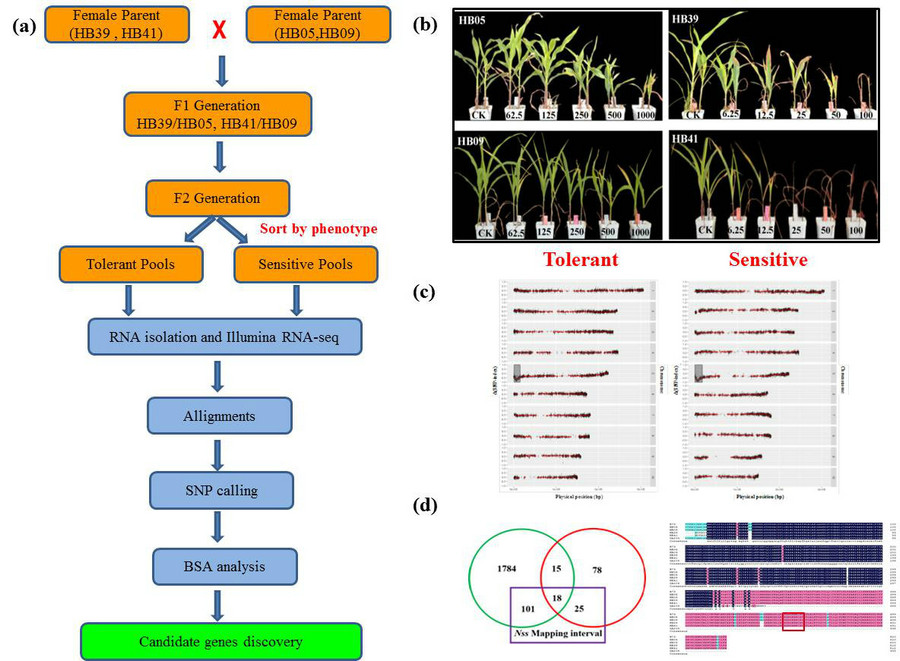Researchers illustrated the segregation patterns of nicosulfuron sensitivity trait in the F1, F2 and BC1 generations from the crosses of tolerant and sensitive inbred lines of maize, also mapped and identified a candidate nicosulfuron sensitivity gene Nss. This is the first report for the explanation of nicosulfuron sensitivity formation mechanism of maize, which caused by the deletion mutation and its low expression of Nss that retlated with herbicide metabolism. The study revealed the importance of Nss in response to herbicide stress, and provided supports for herbicide damage management and for the research and development of transgenic herbicide-resistant crop in the future.
The representative paper is “Rapid identification of a candidate nicosulfuron sensitivity gene (Nss) in maize (Zea mays L.) via combining bulked segregant analysis and RNA-seq” , published in Theoretical and Applied Genetics on January 16, 2019, the impact factor was 4.439. Liu xiaomin is the first author. Institute of Cereal and Oil Crops in HAAFS is the corresponding unit.
Abstract: Key message A candidate nicosulfuron sensitivity gene Nss was identified by combining bulked segregant analysis and RNA-seq. Multiple mutations of this gene were discovered in nicosulfuron sensitive maize compared with the tolerant. It has been demonstrated that variabilities exist in maize response to nicosulfuron. Two nicosulfuron sensitive inbred lines (HB39, HB41) and two tolerant inbred lines (HB05, HB09) were identified via greenhouse and field trials. Genetic analysis indicated that the sensitivity to nicosulfuron in maize was controlled by a single, recessive gene. To precisely and rapidly map the nicosulfuron sensitivity gene (Nss), two independent F2 segregating populations, Populations A (HB41×HB09) and Population B (HB39×HB05), were constructed. By applying bulked segregant RNA-Seq (BSR-Seq), the Nss gene was respectively mapped on the short arm of chromosome 5 (chr5:1.1-15.3 Mb) and (chr5:0.5-18.2 Mb) using two populations, with 14.2 Mb region in common. Further analysis revealed that there were 43 and 119 differentially expressed genes in the mapping intervals, with 18 genes in common. Gene annotation results showed that a cytochrome P450 gene (CYP81A9) appeared to be the candidate gene of Nss associated with nicosulfuron sensitivity in maize. Sequence analysis demonstrated that two common deletion mutations existed in the sensitive maize, which might lead to the nicosulfuron sensitivity in maize. The results will make valuable contributions to the understanding of molecular mechanism of herbicide sensitivity in maize.
Contact: Professor LIU Xiaomin, Institute of Cereal and Oil Crops
E-mail:liuxiaominsjz@gmail.com Tel: +86-18931191529
